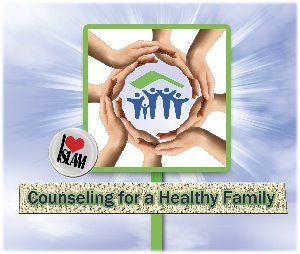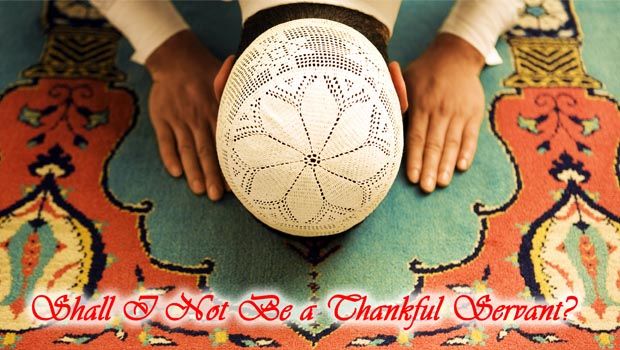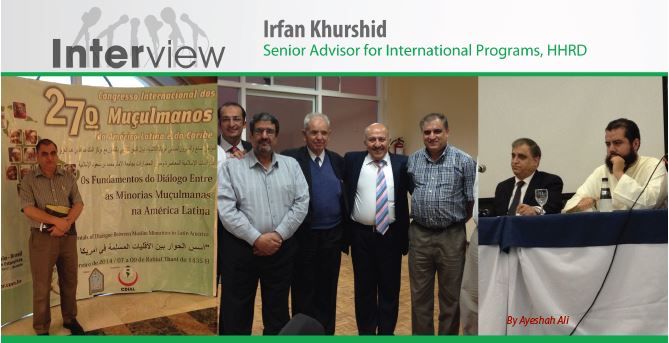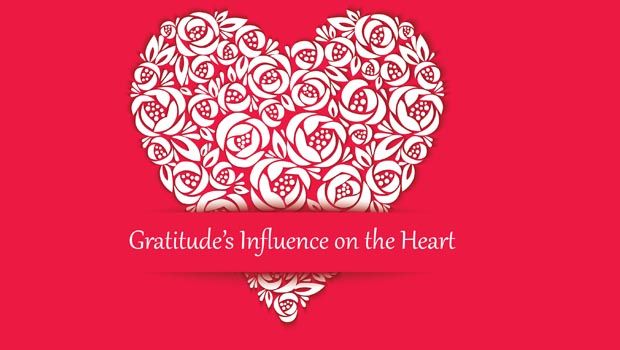How does counseling help people make their families better, safer, secure and loving? To understand this, we have to be familiar with the goals and objectives of counseling, family counseling, and Islamic family counseling. The goal of clinical counseling is to help people continually help themselves. Taking this to a family level, family counseling focuses on helping family members deal appropriately with their immediate problems, and learn better ways of relating overall. Family counseling can be broken down into the categories of spousal or couples counseling, parental counseling, and teen counseling.
We can list the goals of Islamic family counseling as follows:
- To help the person come to the realization that his relationship with Allah is the primary relationship in his life, to which all other relationships are secondary.
- To help the person strengthen her relationship with Allah to the degree that it becomes her source of strength, courage, and guidance for all of life’s challenges (all experiences that she goes through).
- To help the person have a larger goal in life, that of being pious, which is his own choice; and to be assured that he is looked after and cared for (internalizing the concept of tawakul, which means putting our trust in Allah for everything).
- To help the person analyze her actions and interactions objectively in light of Islamic values.
- To help the person identify and deal with his negative thoughts and emotions in a healthy way so that these thoughts and emotions don’t push him into unhealthy patterns of behavior.
- To help the person recognize the choices she has made in life and take responsibility for these choices and actions and their consequences.
- To help the person identify his own destructive, negative, or hurtful behaviors and replace them with healthy and positive behaviors.
Common Problems
Ask any family counselor, and he/she will tell you that there are certain common problems that are seen over and over, no matter the family member’s background, socioeconomic status, culture, or age. These typical problems are the ones most counselors spend their time addressing, and the ones most family members find themselves suffering from.
- Repetitive arguments: no matter how small the actual subject being argued, repetitive arguments can drive family members apart and blow up into seemingly much larger issues.
- Feeling of emptiness or distance in the relationship: one or both spouses often complain of feeling ‘distant from’ or misunderstood by the other. It can be worse when the other spouse is oblivious to this problem.
- Pervasive feelings of anger: this can become extremely destructive and lead to negative behavior toward other family members.
- Resentment: a common problem when a family member feels unsupported or misunderstood. Resentment will often manifest without any outward signs, making it hard for other family members to spot.
- Lack of support system: one of the leading causes of resentment.
- Lack of interest in affection or in physical relationship with one another: an underlying problem that often leads to many more day-to-day problems. This can easily drive a couple apart even if all other aspects of the relationship seem to be fine.
- Financial issues: Couples need to be able to discuss their financial situation openly and feel that they are on the same page when it comes to spending decisions. Financial problems or feeling a lack of financial control can manifest in decisions both big and small, from whether or not to take a trip overseas to visit family all the way down to grocery shopping decisions.
- In-law related problems: A marriage is the combining of two people from two different families, and as a result, couples will always face differences in the way they do things big and small. While they may be able to negotiate these differences at a spousal level, it is often much more complicated to resolve issues when members from one or both families are involved.
Reminders to the Couples
As many of the problems faced by our families come down to a misunderstanding of gender relationships in Islam, studying the verses and hadeeths dealing with gender interactions is key. One such verse’s translation is as follows:
“The Believers, men and women, are protectors one of another: they enjoin what is just, and forbid what is evil: they observe regular prayers, practice regular charity, and obey Allah and His Messenger. On them will Allah pour His mercy: for Allah is Exalted in power, Wise.” (Q9: 71)
Other important verses related to gender relations are as follows: “Repel (evil) with what is best.” (Q41: 34)
“Say to My servants that they should (only) say those things that are best: for Satan doth sow dissensions among them: For Satan is to man an avowed enemy.” (Q17: 53)
These verses stress the importance of always behaving in the best way and using the best language. Allah swt tells us not only to say those things which are good, but to “say those things which are best”. Couples who follow this advice will avoid situations in which a hurtful comment made carelessly can scar the relationship and do serious damage.
Allah swt also advises us what to do when the inevitable disagreements do occur:
“Do you not wish that Allah should forgive you? For Allah is Oft-Forgiving, Most Merciful.” (Q24: 22)
“And forget not kindness among yourselves: verily, God sees all that you do.” (Q2: 237)
Perhaps the verse that best illustrates the ideal spousal relationship is as follows:
“They (your wives) are your garment and you are their garment.” (Q2: 187)
This simple but beautiful simile conveys succinctly several aspects of the spousal relationship. First of all, a garment is not a part of the human being wearing it; it is something external. Be that as it may, it is the closest thing to a human being. A garment describes its wearer; it gives him or her a personality. Like a garment, a husband and wife are closest to each other and should reflect each other’s personality. In addition, a garment covers, conceals, and protects. It covers our nakedness and it conceals our blemishes. It protects us from our external surroundings. Like a garment, a husband and wife provide this covering, concealment, and protection for each other.
A garment also provides comfort and meets the needs of the person wearing it. Like a garment, a husband and wife in their interactions should try to adapt to various situations to make their life successful, happy, and harmonious. A garment is also a source of pleasure and beauty. It not only gives the wearer a unique personality, it also enhances and beautifies that personality. Like a garment, a husband and wife become each other’s adornments. They enhance each other’s personality so that it is seen in the best possible light.
Finally, a garment does not destroy what it covers; rather, it adorns, protects and complements. In a similar manner, the husband and wife do not suffocate each other by their closeness and togetherness; rather they strengthen and support each other, complement and enrich each other, help to bring out the best in each other in all spheres of life and interactions.
Along with the Quranic verses listed above, the prophet’s sunnah provides many examples of important concepts we can apply to family and spousal relations. There are prophetic sayings (ahadeeth) targeted at both men and women, urging them and encouraging them to be good to the opposite gender and treat each other with respect and kindness.
Some ahadeeth targeted at men are as follows:
Be kind to ladies. (At-Termezy)
The best of you is the best to his family and wife. (Ibn Majah and others)
A person who is kind to women is an honorable person. A person who is mean to them is a non-dignified one.(Al-Jame’ Al-Sagheer)
Some ahadeeth targeted at women are as follows:
If a woman prays her five prayers, fasts her month (Ramadan), preserves her chastity, and obeys her husband, she will be rewarded with Jannah. (Al-Bazzar)
If a woman dies while her husband is satisfied with her, Allah will admit her to paradise. (Ibn Majah and others)
As you can see, when the prophet pbuh addressed men, he encouraged them and urged them to be good to women, and when he addressed women, he encouraged and urged them to be good to men. This shows the importance of focusing on one’s own behavior, rather than focusing on how others behave. This is another concept we can apply to all our interactions.
Parental Counseling
While the concepts above are primarily relevant for couples counseling, parental counseling has a slightly different focus. The dynamic in a parent-child relationship is such that the parent has the majority of power and authority. As such, it is critical that parental counseling empowers parents with the right knowledge to allow them to parent as effectively as possible. Parental counseling gives parents knowledge of child development, its stages, and the characteristics of each stage. This alone helps parents understand that what might seem strange is a normal stage that their child is passing through, and this knowledge helps alleviate possible stress and problems.
Counseling also gives parents knowledge of the basic Islamic principles of parenting, and looks to the Prophet’s (pbuh) example as a parent for helpful tips on how to behave with children. Finally, counseling gives parents insight about the environment in which we now live, and in which their child is growing up. In many cases, Muslim parents have emigrated from a different country with a drastically different culture. If they expect to be able to raise their children the way they were raised, despite the change in times and in culture, they will be in for a huge shock. Understanding how their children are being acculturated through their experience in school, with friends, and through the media is extremely important in giving them the right tools with which to parent.
Once parents have been empowered with this knowledge, the next step of counseling is to motivate them to put the knowledge into practice. Counseling helps parents, through self-examining and self-scrutiny, to identify their negative and positive behaviors toward their children, which create and inform their relationships. It also helps them identify the sources of the negative behaviors, whether it be bad habits, old cultural baggage, or their own emotional issues. Counselors will give parents tools to help them overcome negative behaviors and learn new, positive ways of dealing with their children, as well as additional parenting tools such as story telling and positive and negative reinforcement for children’s behavior. Finally, counseling is a very hands-on process, and counselors will provide parents with tools for implementation and monitoring of their progress as they move forward.
Counseling Skills
We’ve now seen the benefits that can be gained from going to an Islamic family counselor. What is the best way, however, to go about choosing a counselor who will be able to guide you to all these benefits? It’s important to look for someone with the specific skills that are critical for counseling success. A good counselor must have the right kind of knowledge: Islamic knowledge, yes, but also knowledge of human psychology, particularly as it applies to those he/she is counseling. For example, a marriage counselor would need to have strong knowledge and be well-read on the psychology of both men and women, while a children’s counselor or a parenting counselor would need to have a strong knowledge of child developmental stages and child psychology. It’s critical that counselors also have knowledge of the environment. Many families assume that asking an imam in the Middle East or the Far East about issues they are facing in the West is an effective way to find solutions. We would suggest that while an imam will be well versed on the Islamic texts needed to come to a solution, applying that knowledge to the issue without understanding the context or environment of the issue, will not result in an ideal resolution.
Counselors must also have strong communication skills. This includes active listening and a mastery of the art of dialogue. A counselor must be able to get to the root of the problem, even though family members may not always be able to spell it out, due to shyness, embarrassment, or sometimes not even knowing what the problem is themselves. Thus, a counselor needs to know how to question without offending. A counselor should be impartial to all parties involved, and finally, a counselor must show wisdom, the ability to apply knowledge properly to resolve issues. Wisdom is not just an innate quality, although Allah swt has blessed some people with this gift. Wisdom can be developed through the consistent following and application of Allah swt’s rules. As the Prophet pbuh told us in a hadeeth, “Wisdom is the property of the believer. Wherever he finds it, he should claim it”. This shows us that wisdom can be learned and cultivated, and that wisdom includes the application of new knowledge and
innovation.
By Dr. Rida Beshir and Noha Beshir





